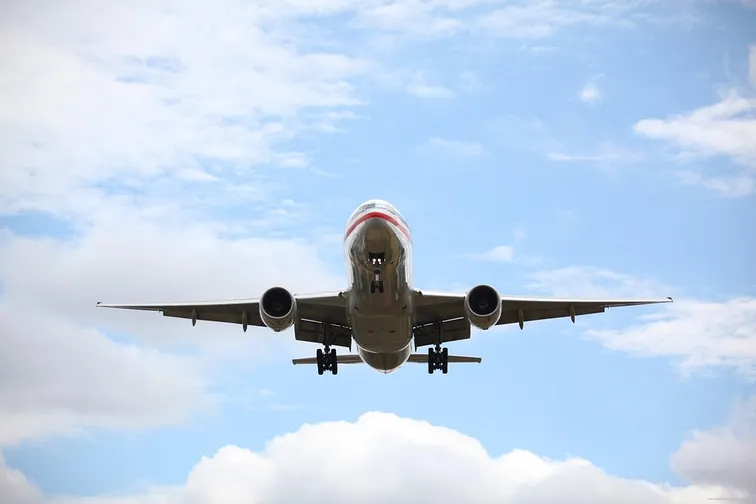Let us start with the most encouraging news, and that is the gradual return to normal. The European Commission (EC) has been gradually (though very slowly) returning to its normal way of working since the beginning of last week (4 May), as said DG COMP Director-General O. Guersent at the ABA Antitrust Spring Meeting. EU courts also want to resume normal activities from 25 May 2020 (the CJEU has scheduled an oral hearing with the Belgian collective copyright administrator SABAM for 27 May 2020).
State aid
Since the last contribution, we have counted a total of 28 state aid measures newly approved by the EC. Since the beginning of the coronavirus outbreak, the EC has approved a total of 116 state aid measures (see also the updated list of approved COVID-19 state aid measures).
The approved measures also include two Czech schemes: (i) guarantees for loans to large exporting companies managed by EGAP, and (ii) support for the research and development of innovative solutions, such as medical and other paramedical technologies and solutions, for example, 3D printing systems and applications to facilitate logistics.
Following teleconference calls with the Member States, the EC adopted a second amendment to the State Aid Temporary Framework in the context of COVID-19. The extension of the framework concerns subordinated debt and recapitalisation. The EC is inclined towards subordinated debts because, in its view, they distort competition less than other forms of state aid.
However, the approved state aid measures include not only large-scale schemes but also schemes targeted at specific companies (the airlines Condor in Germany and Air France in France, French carmaker Renault). As we have mentioned here, Ryanair is opposed to state aid schemes for national airlines. It has also brought an action before the General Court against the state aid scheme for the Swedish SAS.
After a long time, the EC has also taken steps regarding state aid in areas other than COVID-19: it has extended an investigation into the grant of state aid to IKEA in the Netherlands and to videogame producers in Belgium.
Allowed cooperation between competitors at the time of COVID-19
The EC has already received several applications for a comfort letter from the agricultural and food sector. The German competition authority then received 20 applications for an assessment of cooperation during the pandemic.
Investigation into anticompetitive practices related to COVID-19
In recent days, some competition authorities have focused on a new area – denying refunds of already paid trips / accommodation / similar services cancelled as a result of the COVID-19 pandemic. Instead, providers offer vouchers to customers, if at all. In France, the travel agents’ association complained about airlines, and then in the United Kingdom, consumers complained about private event organizers, accommodation providers and childcare providers, and also about cottage companies. According to the complaints, this could be an abuse of a dominant position or other anticompetitive practices specifically related to the pandemic to the detriment of the consumer.
Increased prices during the pandemic are still being investigated. For example, the Italian competition authority has initiated an investigation into price increases in the areas of foods, cleaning products, disinfection and gloves. The request for information was received, among others, by the retail chains Carrefour, Coop and Lidl.
How COVID-19 affects competition law enforcement
The German government has submitted to the parliament a bill to mitigate the effects of the COVID-19 pandemic in competition law. In particular, this is a significant extension of time limits for merger assessment. Those undertakings that have had fines imposed for anticompetitive conduct and which are currently unable to pay them are to be exempted from paying interest until the end of June 2021.
The economic crisis associated with COVID-19 has also brought considerations as to the possibility of prohibiting mergers for reasons other than competition reasons. Some states are concerned that some “national champions” may become easy prey for foreign companies. They are therefore considering expanding the range of strategic sectors in which governments should be able to veto such mergers through a foreign investment control mechanism - FDI (e.g. France in the biotech sector, Germany in the healthcare sector).
COVID-19 has not however stopped the common competition agenda
About half a year ago, we informed you about the application (until then) of a rather rare tool, a preliminary measure imposed by the EC in the case of Broadcom. This case has progressed to the next stage. At the end of April, the EC published the proposed commitments and invited comments from the interested parties. The commitments are intended to remove the contractual conditions that led to exclusivity (obligation to take a certain quantity, etc.).
The UK competition authority (CMA) was willing to approve the acquisition of Deliveroo by Amazon with reference to a change of circumstances related to COVID-19, then, it was adamant in the case of the acquisition of Footasylum by JD Sports Fashion. The CMA has admitted that COVID-19 led retailers to face uncertain and challenging trading conditions. However, in the present case, according to the CMA, these are the closest competitors and their merger would (despite COVID-19) harm consumers. JD Sports is considering filing an appeal on the grounds that the CMA allegedly failed to take sufficient account of the economic reality associated with COVID-19.
The Greek competition authority is continuing a series of sector investigations. The new sector investigation is to focus on the area of FinTech. It is intended to cover the provision of financial services and modern tools facilitating the restriction of competition in the digital environment. It should focus mainly on mobile wallets and P2P mobile payments.
Some competition authorities have then found space to elaborate or rework their soft law. The Danish competition authority has updated guidelines on joint bidding, the Austrian competition authority has issued guidelines on the (non) application of competition rules within the group, and the Lithuanian competition authority has published an explanatory note on inspections carried out at business premises. In Estonia a draft law significantly increasing fines, inter alia for anticompetitive conduct, has been prepared.
Article sources
- want https://curia.europa.eu/jcms/upload/docs/application/pdf/2020-04/cp200051en.pdf
- has scheduled http://curia.europa.eu/juris/fiche.jsf?id=C%3B372%3B19%3BRP%3B1%3BP%3B1%3BC2019%2F0372%2FP&oqp=&for=&mat=or&lgrec=en&jge=&td=%3BALL&jur=C%2CT%2CF&num=C-372%252F19&dates=&pcs=Oor&lg=&pro=&nat=or&cit=none%252CC%252CCJ%252CR%252C2008E%252C%252C%252C%252C%252C%252C%252C%252C%252C%252Ctrue%252Cfalse%252Cfalse&language=en&avg=&cid=5381115
- list https://ec.europa.eu/competition/state_aid/what_is_new/State_aid_decisions_TF_and_107_2_b_and_107_3_b.pdf
- guarantees https://ec.europa.eu/commission/presscorner/detail/en/ip_20_794
- support https://ec.europa.eu/commission/presscorner/detail/en/ip_20_829
- teleconference calls https://app.parr-global.com/intelligence/view/prime-3028525?utm_source=Notifications&utm_medium=Email&utm_campaign=Alert&utm_term=5bad26ede3d5ab001d96516a
- adopted https://ec.europa.eu/commission/presscorner/detail/en/ip_20_838
- Condor https://ec.europa.eu/commission/presscorner/detail/en/ip_20_752
- Air France https://ec.europa.eu/commission/presscorner/detail/en/ip_20_796
- Renault https://ec.europa.eu/commission/presscorner/detail/en/ip_20_779
- here https://www.havelpartners.blog/blog/navzdory-pandemii-soutezni-pravo-zpiva-dil-iv/128
- brought http://curia.europa.eu/juris/fiche.jsf?id=T%3B238%3B20%3BRD%3B1%3BP%3B1%3BT2020%2F0238%2FP&oqp=&for=&mat=or&lgrec=en&jge=&td=%3BALL&jur=C%2CT%2CF&num=T-238%252F20&dates=&pcs=Oor&lg=&pro=&nat=or&cit=none%252CC%252CCJ%252CR%252C2008E%252C%252C%252C%252C%252C%252C%252C%252C%252C%252Ctrue%252Cfalse%252Cfalse&language=en&avg=&cid=4846
- IKEA https://ec.europa.eu/commission/presscorner/detail/en/mex_20_782
- videogame https://ec.europa.eu/commission/presscorner/detail/en/mex_20_782
- received https://www.allenovery.com/global/-/media/allenovery/2_documents/news_and_insights/publications/2020/05/covid-19__antitrust_enforcement_rules_1_may_2020.pdf
- complained https://www.facebook.com/permalink.php?id=476787722682256&story_fbid=1106335459727476
- consumers https://www.gov.uk/government/news/covid-19-cma-to-investigate-cancellation-policy-concerns
- also https://www.which.co.uk/news/2020/05/coronavirus-are-holiday-letting-companies-using-unfair-terms-to-deny-refunds/
- initiated https://www.agcm.it/media/comunicati-stampa/2020/5/DS2620
- bill http://dipbt.bundestag.de/dip21/btd/19/189/1918963.pdf
- biotech https://www.mayerbrown.com/-/media/files/perspectives-events/publications/2020/05/foreign-investments-in-france_may20.pdf
- healthcare sector https://www.bmwi.de/Redaktion/DE/Pressemitteilungen/2020/20200428-altmaier-muessen-von-kritischen-unternehmenskaeufen-im-gesundheitssektor-rechtzeitig-erfahren-und-diese-pruefen-koennen.html
- Broadcom https://www.havelpartners.blog/blog/broadcom-predbezna-opatreni-v-antitrustu-znovu-na-scene/91
- published https://ec.europa.eu/competition/antitrust/cases/dec_docs/40608/40608_2511_10.pdf
- invited https://ec.europa.eu/commission/presscorner/detail/en/ip_20_755
- adamant https://www.gov.uk/government/news/cma-blocks-sports-fashion-merger
- is considering https://otp.tools.investis.com/clients/uk/jdsports3/rns/regulatory-story.aspx?cid=222&newsid=1389820
- FinTech https://www.epant.gr/en/enimerosi/sector-inquiry-into-fintech.html
- focus https://www.epant.gr/files/2020/fintech/fintech_en.pdf
- Danish https://www.en.kfst.dk/nyheder/kfst/english/news/2020/20200507-public-hearing-on-guidelines-on-joint-bidding/
- Austrian https://www.bwb.gv.at/fileadmin/user_upload/PDFs/Standpunkt_zu_Fragen_der_Anwendbarkeit_des_kartellrechtlichen_Konzernprivilegs__Update_Mai_2020_.pdf
- Lithuanian https://kt.gov.lt/en/news/konkurencijos-taryba-publishes-explanatory-note-on-inspections-performed-at-business-premises
- Estonia https://news.err.ee/1086256/ministry-of-justice-proposes-much-higher-fines-for-financial-violations








